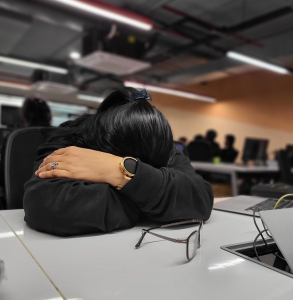
With all life’s difficulties, females also have to deal with menopause at the middle of their lives. Menopause is a regular part of the ageing process in the female body.
A female body produces hormones such as estrogen and progesterone in the body. As we grow old, the production of these hormones reduces in the body. One day the ovaries stop making these hormones altogether, and that is when you reach menopause.
Menopause happens in three stages, perimenopause, menopause, and post-menopause. Let’s look at these stages, how do you identify them, and what to do when you are experiencing one of them:
Perimenopause
When you reach around 45 years of age, you start experiencing symptoms of perimenopause. These symptoms include a change in period pattern, insomnia or sleep disturbance, and frequent changes in your mood. This is your body getting prepared for menopause that is to come and warning you about it. The symptoms of hot flashes, chills and irregular periods might start and carry well into menopause. During this stage, you might notice the shape and size of your breast changes, they might pain unexpectedly, or you might see a lump in your breast.
Menopause
Menopause is when females stop menstruating for 12 months without being pregnant or experiencing any sickness symptoms. Women usually have menopause when they reach around 50 years of age. Around this age, your symptoms become more intense. The symptoms may include chills and hot flashes. Often your whole body, especially your chest, face, and neck, will turn hot for no apparent reason. The chills come after a bout of hot flashes. You might also experience night sweats that are nothing but hot flashes that happen at night. The severity of these night sweats depends on every individual and varies accordingly.
You feel depressed and get emotional for trivial reasons.
You might notice that you have started to gain weight, especially around your waist. You might find it challenging to move, your joints are stiff, or your joints might just plain hurt.
Post-menopause
In the post-menopause stage, your body is adjusting to menopause and the absence of some critical hormones. This stage is reached around 55 years of age. You might experience some physical discomfort symptoms such as weakening your pelvic muscles and frequent urination. The other symptoms are dryness and sensitivity around your vagina and skin and the thinness of hair. These symptoms often start at the perimenopause stage and linger well after you have reached the post-menopausal stage.
Some items are known to trigger hot flashes, so try to avoid them during these periods. These triggers include alcohol, caffeine, spicy food, stress, and a hot climate. If you experience hot flashes, try to dress in layers and sit with an AC or fan. Also, do breathing exercises if you are in a nasty hot flash.
Health effects
After you have reached menopause, ensure you are extra vigilant of your health. Do your health checkups regularly. Make those all-important changes in your diet, routine, and exercise. Ensure you do a mammogram once every year. A stitch in time saves nine. This saying is most applicable in the case of your health.
Menopause comes with a lack of estrogen and progesterone in your blood, and scientists have found that the lack of estrogen in women’s perimenopause and menopause stages might develop osteoporosis. Make sure you test your bone health regularly.
If you have a penchant for high cholesterol in the blood, now is the time to work towards reducing it, as it might lead to coronary heart disease or CHD. Be sure to test your blood regularly.
If you have none, start a balanced diet, incorporate some light exercise, keep yourself active, and maintain a schedule. Most importantly, if you feel those all too familiar bouts of sadness and depression, understand that they are usual symptoms and consult a doctor to lessen them.
Conclusion
In conclusion, while the symptoms of menopause vary from woman to woman, your body starts to prepare well in advance. Some researchers elude that the stages of perimenopause and menopause may continue for as long as twelve years. So the smart thing will be to listen to your body and understand the indications it is throwing at you. Just as your body prepares for the changes it will undergo, you mould your lifestyle to ensure that you ease into this stage.
The biggest takeaway from these should be that you should make a doctor your best friend during this time. Be conscientious about your health, do regular checkups, and ensure that you inform a medical professional about it at the first sign of any discrepancy, no matter how small it is.
Source link:
https://my.clevelandclinic.org/health/diseases/21837-postmenopausehttps://www.abbott.com/corpnewsroom/nutrition-health-and-wellness/avoid-common-diseases–a-woman-s-guide-to-lifelong-health.html



